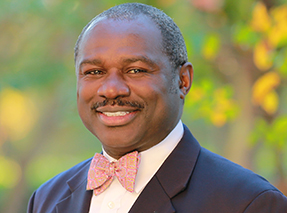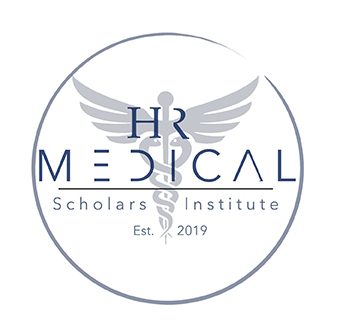Medical Schol
Stafford G. Brown, Jr., MD
Hampton Roads Radiology Associates

Across the country, less than six percent of all physicians are Black, compared to about 14 percent of the population as a whole.
More alarmingly, that figure has barely budged in more than 120 years, according to an April report in the Journal of General Internal Medicine. Another study found the percentage of Black men in medical schools has actually dipped slightly over the past 40 years.
The Hampton Roads Medical Scholars Institute (HRMSI), launched in 2019, aims to change both pieces of that narrative. The community-based nonprofit provides comprehensive mentorship to future Black male physicians, starting at the end of high school and continuing through their matriculation at medical school.

HRMSI was created by four Black physicians, a medical student, a lawyer and a guidance counselor to give promising students access to the advisors and role models that many might otherwise be missing. Two more physicians plan to join the growing team this summer.
“This is a real crisis because diversity in health care is so important,” says Dr. Stafford Brown, one of the organization’s founders. “Patients are much more likely to follow and trust a doctor’s directions if they can identify with that doctor. I feel we also have a great responsibility to help the next generation of Black physicians thrive, beginning here at home.”
Services provided by HRMSI include help with college course selections, bimonthly progress checks via Zoom, summer job shadowing opportunities, financial assistance for the Medical College Admission Test (MCAT) and student medical conferences, and guidance on professional skills such as interviewing and writing resumes.
“We see ourselves as a one-stop-shop for success,” Dr. Brown says. “Our students have access to Black male physicians and leaders 24/7. If they fail at something along the way, we can catch it early, avert more missteps and hopefully keep them on track.”
HRMSI currently has five students in its program, including two at Old Dominion University, one at Hampton University, one at James Madison University and one at Virginia Commonwealth University. The nonprofit also has six new applicants under consideration.
Candidates must meet three criteria: be Black men interested in becoming physicians in any specialty, be high school seniors graduating from a Hampton Roads school with a minimum grade point average of 3.0, and have plans to attend a four-year university.
Dr. Brown was the first person in his family to graduate from college, attending the University of Virginia as an undergraduate and a medical student. His three children all have gone to UVA as well; his oldest is currently a student at Eastern Virginia Medical School.
Yet many Black students, especially first-generation ones, struggle because they don’t get enough good advice, support or financial aid, he notes. Those factors have left the percentage of Black men in medical schools at 2.9, compared to 3.1 percent in 1978, according to statistics from the Association of American Medical Colleges.
As HRMSI expands, it seeks more medical professionals to volunteer for a collective effort to overcome those obstacles based on its motto: “Your Future is Our Motivation.” Dr. Brown believes every Black physician has a role to play in nurturing future providers and role models.
“We all need to do our part to solve this great disparity in our health care system,” he says. “Doing so will only make our entire community stronger.”
For more information, visit hrmedicalscholars.org or email hrmedicalscholars@gmail.com.

